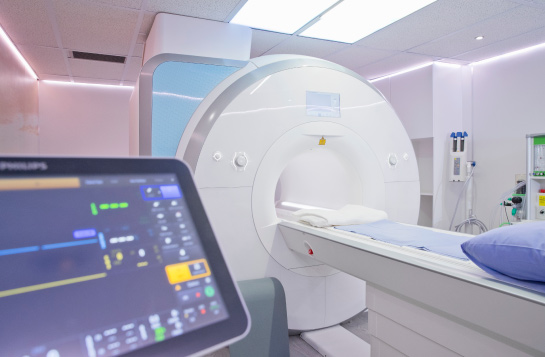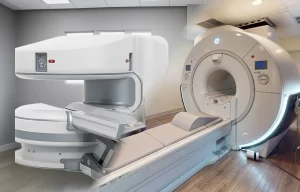MRI scans offer a safe and painless method of obtaining detailed images of the body’s internal structures. By utilizing magnetic resonance, MRI helps doctors differentiate between different types of tissues, providing valuable insights into various health conditions. Let us explore the key benefits of MRI scans in medical practice.
Non-Invasive and Radiation-Free:
MRI scans are non-invasive and do not involve any radiation or surgical procedures, making them a safe option for patients. Unlike X-rays and CT scans, which use ionizing radiation, MRI uses magnetic fields and radio waves to create images, eliminating potential radiation risks. MRI is ideal for regular monitoring and repeated imaging, making it well-suited for detecting hidden abnormalities.
One of the significant advantages of MRI is its ability to reveal problems that may not be detectable through other imaging methods. The sensitivity of MRI technology enables early diagnosis and evaluation of focal lesions, even those obscured by bone. Additionally, MRI excels in assessing the biliary system, identifying abnormalities that might go unnoticed by other imaging modalities.
Painless and Comfortable Procedure:
Patients should not experience discomfort during an MRI scan, allowing them to lie down and remain still throughout the procedure. However, individuals with claustrophobia may require radiographers’ guidance on coping with their fear effectively.
Tracking Treatment Progress:
MRI scans serve as valuable tools for monitoring the progress of medical treatments. By detecting changes in the size of organs, lesions, or tumors, doctors can assess the effectiveness of ongoing therapies and make informed decisions about further medical interventions.
Safety for Sensitive Individuals:
MRI is a safe option for people who are sensitive to radiation, as it does not pose any radiation risks. It is particularly suitable for individuals with genetic or medical conditions that may restrict other imaging methods. Using sedation and anesthesia during MRI scans helps patients relax and reduce potential anxiety during the procedure.
Detailed Imaging of Soft and Hard Tissues:
Unlike X-rays, which primarily visualize dense matter like bone, MRI offers a comprehensive view of soft and hard tissues. The detailed images enable doctors to identify diseased tissues, tumors, inflammation of soft tissues, and bone spurs, leading to accurate diagnoses and appropriate treatment plans.
Faster and Safer than X-rays:
In comparison to X-rays, MRI scans are faster and utilize safer radio waves to create images. The quicker scanning process reduces patients’ time during the procedure, making MRI a preferred option for diagnosing various medical conditions, especially in young children.
Improved MRI Technology:
Advancements in MRI technology have significantly enhanced the speed and precision of the procedure. Faster brain scans can now be completed in less than half a second, providing valuable insights for neuroscience research and medical diagnosis.
MRI scans offer multiple benefits, making them a valuable tool in modern medical practice. From accurate diagnosis to safe imaging for sensitive individuals, MRI is critical in identifying and monitoring various health conditions without subjecting patients to radiation or invasive procedures.




